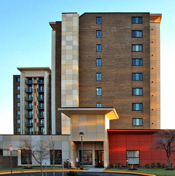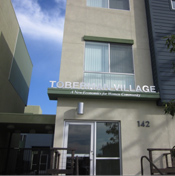Investment and Asset Management
Ensuring that Allstate fulfills its commitment to our customers, employees and shareholders means making sound investment decisions that position us to deliver the services and value they have come to expect. Our investment strategy focuses both on security for today and growth for tomorrow.
Returns on our investment portfolios are an important component of our financial results. Our seasoned investment team uses sophisticated economic forecasting tools and a strategic asset allocation approach that considers the nature of our liabilities and risk tolerances, as well as the risk and return parameters of the asset classes in which we invest.
One area of continued focus is municipal bonds. As of December 31, 2011, Allstate held approximately $14 billion in bonds that help improve infrastructure and extend vital services in communities across the country. The portfolio is actively managed and well diversified among states and sectors. Major holdings include bonds that help fund primary and secondary schools, public and private universities, hospitals, single and multi-family housing programs, green energy projects — such as hydroelectric and wind generated power plants — police and fire stations, libraries and community buildings, and Economic Development Projects.
Allstate also invests in communities through Low-Income Housing Tax Credits (LIHTC), a federal program designed to provide market incentives to develop or rehabilitate affordable housing for low-income families, seniors and individuals with disabilities. The program encourages private investors to provide the equity needed to build quality housing solutions to help strengthen the communities where we live and work.
As of year-end 2011, Allstate has made financial commitments of $635 million to LIHTC projects, while also providing solid investment returns. To date, our investments have helped develop 670 affordable housing complexes with more than 53,000 apartment units in urban, suburban and rural locations across the United States.
Highlighted below are two LIHTC projects completed in 2011 where Allstate provided the majority investment:

Samuel J. Simmons NCBA Estates
Samuel J. Simmons NCBA Estates provides 175 newly renovated, affordable housing units for seniors in the Columbia Heights neighborhood of Washington, D.C. Built in 1981, it was one of the first housing developments to spring up in Columbia Heights following riots that ravaged the neighborhood in the late 1970s. With substantial rehabilitation completed in 2011, Samuel J. Simmons NCBA Estates is again leading the way as Columbia Heights experiences a neighborhood renaissance, while offering safe and affordable homes to seniors who might otherwise be priced out of a neighborhood they have long called home.

Toberman Village
In 2011, Allstate also invested in Toberman Village, which provides 49 units of new, affordable family housing in the working-class San Pedro neighborhood of Los Angeles, CA. Included in the development are units dedicated to households earning considerably less than the average median income for the local community.
At the end of 2011, Allstate’s Social Responsibility Investment Portfolio had a book value of nearly $70 million.
Some examples of how our investments have helped revitalize neighborhoods across the country:
- IMPACT Community Capital investments financed:
- Child care facilities in low-income communities
- Community healthcare facilities serving more than 100,000 patients in underserved areas
- Affordable multi-family rental housing
- Economic development-oriented commercial loans for small businesses in low-income communities
- Local Initiatives Support Corporation investments financed:
- A network of charter schools serving nearly 4,400 students in underserved communities throughout Chicago
- Housing for veterans with special needs
- Facilities to provide young adults with services that support job readiness, placement and training
Allstate’s 2011 investment support of LISC included a low-interest loan of $3.2 million to the UNO Charter School Network (UNO-CSN) in Chicago to refinance existing bank debt. UNO-CSN is working to redefine the culture and expectations of public education, especially among minority students. By providing a rigorous curriculum in a well-managed, structured environment, UNO-CSN is demonstrating how all children, regardless of their income level or ethnicity, can learn.
UNO-CSN operates eleven schools, which collectively serve 5,500 students, 95 percent of whom rely on free or reduced-price lunches each school day. The school model is designed to help students excel academically and to develop healthy extracurricular interests through extended-day learning, sports and clubs.
Allstate also has a policy to exclude certain kinds of investments. For example, we do not:
- Directly invest in tobacco companies
- Directly invest in liquor companies
- Invest in countries, governments, organizations and individuals specified by the Office of Foreign Assets Control
Allstate is using its resources to make a difference where it is needed most. In today’s uncertain economic climate, such targeted investments are more critical than ever.
Additional information can be found in Allstate’s 2011 Annual Report.